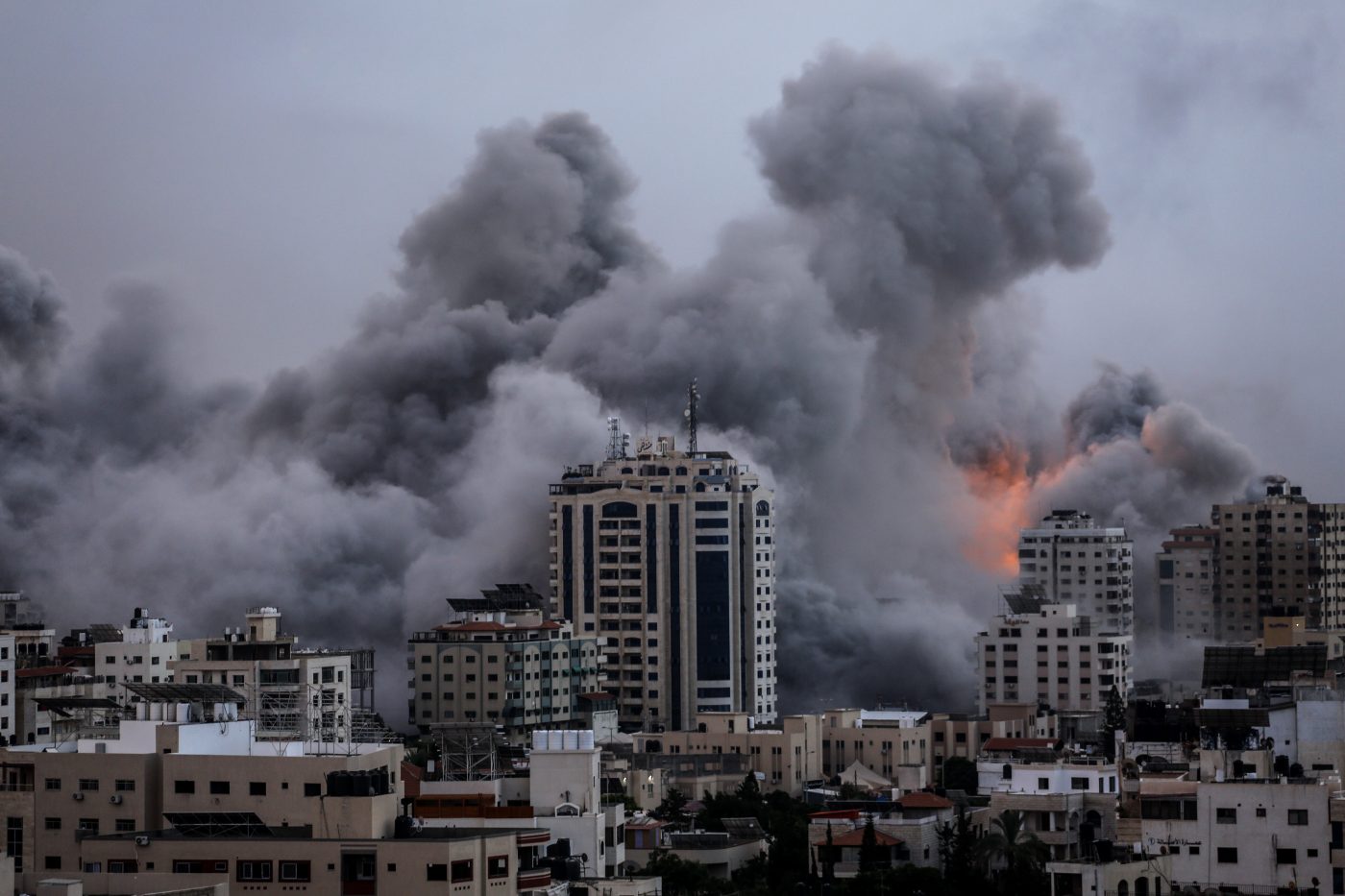“Russia is interested in triggering a war in the Middle East so that a new source of pain and suffering could undermine world unity, increase discord and contradictions, and thus help Russia destroy freedom in Europe,” he declared on October 9.
The comments received widespread international press coverage, and have been echoed by others, but do they accurately reflect Russia’s objectives?
The short answer is yes. The war between Israel and Hamas benefits Russia in two main ways.
First, it’s what Russian commentators believe; in their view, a protracted war would divert US attention from Ukraine. Russian political scientist Dmitry Rodionov argued that a rapid Israeli victory would not disrupt Western aid to Ukraine, but a war lasting weeks or months would place Ukraine on a “starvation diet” as arms are redirected to the Middle East.
Russian military analyst Boris Dzherelievsky claimed (without evidence or much logic) that weapons intended for Ukraine have already been sent from Poland to Israel. Dzherelievsky predicted that a long war would lead to Minsk III and the surrender of vast swathes of Ukraine, including Odesa and Mykolaiv, to Russia.
Second, the Israel-Gaza war allows Russia to reassert itself as a diplomatic power in the region. Although Russia officially welcomed China’s brokering of the Saudi Arabia-Iran normalization agreement in March, Kremlin concerns were growing about its marginalization as a Middle Eastern stakeholder. Russia’s key role in engineering Syria’s return to the Arab League and its hosting of Saudi Arabia-Iran security talks at the August 2023 Moscow Security Conference eased these fears. The Gaza War presents it with a major diplomatic opportunity.
Through its participation in the Middle East Quartet, which also includes the European Union (EU), the United States, and the United Nations (UN), Russia has ensconced itself as a diplomatic player in Arab-Israeli conflict negotiations. During the May 2021 Israel-Hamas conflict, Russia repeatedly called for a Middle East Quartet meeting and offered to host Israeli-Palestinian negotiations in Moscow. Russia’s engagement with Hamas, which was initially aimed at preventing the terrorist group from aiding Syria’s anti-Assad rebel forces, illustrates its desire to show it is in touch with all parties in the Israel-Palestine conflict.
Russia’s response to the current Israel-Gaza War has followed a similar playbook. The Foreign Ministry swiftly called for a ceasefire and negotiations aimed at creating a Palestinian state. Russian President Vladimir Putin blamed the war on US policy, as he accused it of trying to “monopolize regulating” the conflict and avoiding mutually beneficial solutions. By presenting Russia as a voice of de-escalation, Putin is trying to capitalize on mistrust of the US’s unabashed pro-Israel stance (it is foursquare behind Israel) and reaffirm the Kremlin’s regional partnerships.
On October 7, Russian Foreign Minister Sergei Lavrov spoke to his Egyptian counterpart Sameh Shoukry about a cessation of hostilities. Three days later, Putin hosted Iraqi Prime Minister Mohammed Shia al-Sudani to discuss the crisis and wove an expansion of oil market collaboration under the OPEC+ framework into his meeting. The following day, Putin talked to Turkish President Recep Tayyip Erdoğan and expressed concern about civilian casualties in the Gaza war, an emotion that Ukrainians might find surprising. Russia’s shuttle diplomacy is unlikely to yield any diplomatic breakthrough, but it shows that it is not isolated in the Middle East.
But while a protracted conflict between Israel and Hamas localized in the Gaza Strip benefits Russia, a multi-front regional war could undermine the Kremlin’s interests. Russian experts believe a multi-front war to be a real possibility. Kirill Semenov, a Middle East expert at the Russian International Affairs Council, opined that the risk of a second front emerging is “very high” and predicted that Hezbollah, based in Lebanon and intimately connected to Iran, wants to showcase itself at the forefront of the struggle against “Zionist occupation.”
Russia has long feared a region-wide war originating in the Gaza Strip. During the May 2021 Israel-Hamas war, Kremlin Press Secretary Dmitry Peskov described this outcome as a security threat to Russia, since the Middle East abuts Russia.
Although the United Arab Emirates has reportedly urged Syrian President Bashar al-Assad to stay out of the Gaza War, Syrian shells have already landed on Israeli territory. Further instances of this kind, or an escalation of Hezbollah attacks from Lebanon, could lead to Israel directly striking Iran-linked military assets in Syria (on October 12, Israel attacked Syrian airports including Damascus, with sources saying it was disrupting Iranian supplies to groups in the region.) This chain of events would endanger Russia’s ground forces in Syria, and increase the risk of a direct confrontation between Israel and Russian forces based there.
A conflict between Iraq’s pro-Iran Popular Mobilization Front (PMF) militias and Israel, which previously occurred in the summer of 2019 and could re-erupt as a result of this conflict, would also place Russia in a difficult position. Russia periodically engages with the PMF on Syria-Iraq border security and PMF-aligned outlets have helped shape Iraqi public opinion in favor of Russia’s invasion of Ukraine. Russia is keen to avoid having to choose between its military ally, Iran, and long-standing unofficial partner Israel. It views an expanding Iran-Israel proxy war with alarm.
While Russian propagandists fire off anti-Israeli diatribes and Chechnya’s leader Ramzan Kadyrov boasts of his ability to deploy peacekeepers to support Palestine, the Kremlin’s real attitude towards the Gaza War is more circumspect. Russia will likely continue its shuttle diplomacy, while quietly rooting for a long war in Gaza that does not extend far beyond its borders.
Dr. Samuel Ramani is a tutor of politics and international relations at the University of Oxford, where he received his doctorate in March 2021. He is also a geopolitical analyst and commentator, and an Associate Fellow at RUSI.
Europe’s Edge is CEPA’s online journal covering critical topics on the foreign policy docket across Europe and North America. All opinions are those of the author and do not necessarily represent the position or views of the institutions they represent or the Center for European Policy Analysis.





